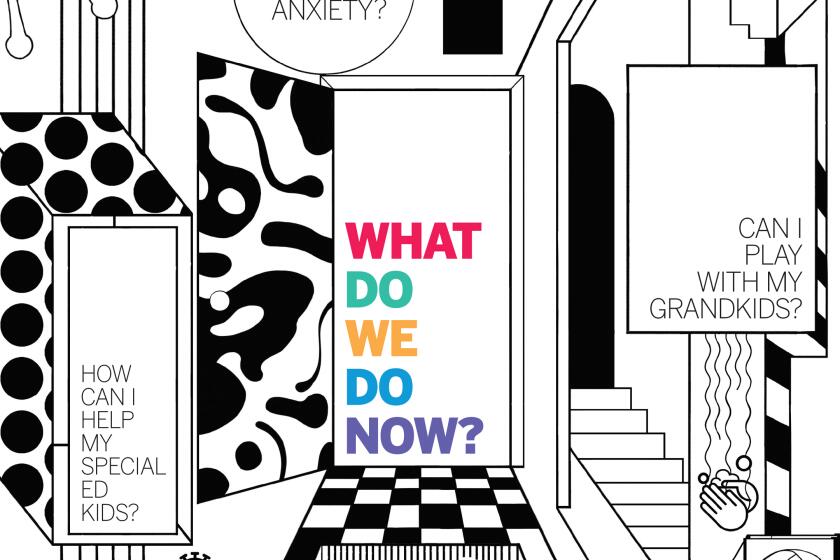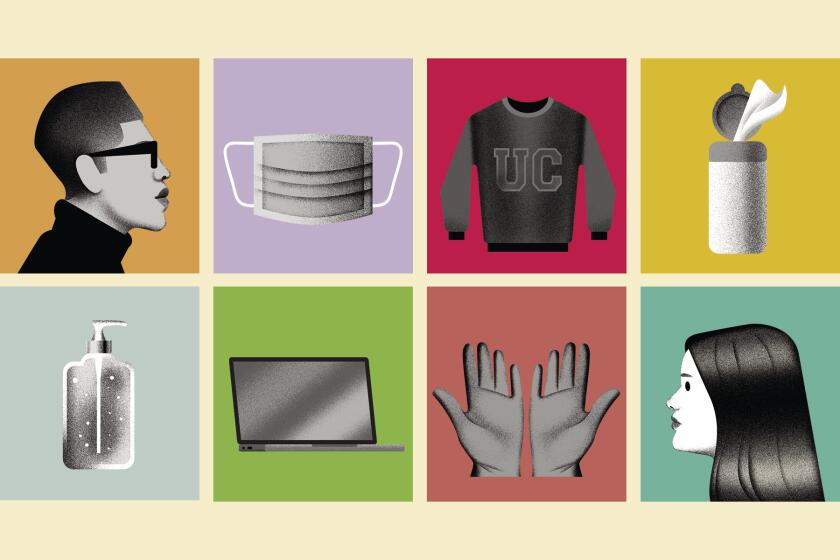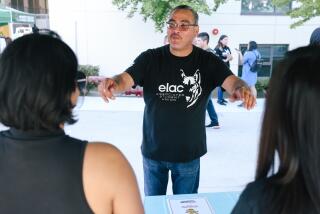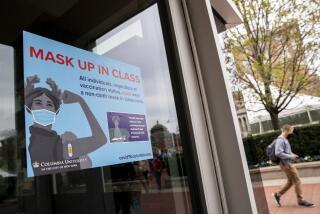How safe is it for young adults to be at college during a pandemic?

- Share via
We’re answering readers’ questions about life during the pandemic:
Is it safe for me to send my son 3,000 miles away to a small college?
With recent COVID-19 outbreaks at fraternities at UC Berkeley and USC, students know that their ability to stay safe depends on following strict guidelines. But can they be trusted to do so? For parents, the decision to send kids to college during a pandemic will depend on their willingness to accept the risk that their child will be exposed to the virus.
Several small colleges — including Reed, Vassar and Kenyon — plan to host a mix of online and in-person classes as more than 6,600 cases of COVID-19 have been reported at 270 colleges since the pandemic began. However, this status is ever-evolving; the school websites should have up-to-date information for you.
We asked readers for their most pressing coronavirus questions. The topics included schooling, passports and healthcare. These are answers from experts.
Parents should consider the rate of community transmission, talk with their child about how to prevent infection, and be aware of the college’s response plan, including quarantine and healthcare options, if they get sick.
Karl Minges, director of the master of public health program at the University of New Haven, is cautiously optimistic. “As long as you adhere to the public health guidelines of face masks, maintaining social distance and washing hands, I think there is not much risk to engaging in these activities. Colleges and universities, like mine, are requiring all returning students, staff and faculty to have proof of a negative COVID test prior to returning to campus.”
Many parents feel uneasy about students returning to campus this fall. Here are some things to consider before they do.
Still, even with preventive measures, an outbreak could occur and students may have to return home. Others are not as optimistic as Minges.
William Hanage, an associate professor of epidemiology at Harvard’s T.H. Chan School of Public Health, is concerned with community transmission. “Schools are one of the most important parts of our society,” Hanage said on a recent Facebook Live interview. “But once you open them, you run the risk of that contributing to community transmission. If you have a point when community transmission is so high that you’re going to have to be going back in the direction of more severe restrictions, then schools may close anyway. So I think what we need to do is not open until we’re really at the limit of another outbreak. And then, in a few months, add schools again on top of that.”
Ultimately, there are no easy answers. Each family needs to figure out what works best for their circumstances.
We’re listening, L.A.: Tell us what you want to know about the most pressing questions you have at this time — how to find a job, the best ways to manage your finances, and whether it’s safe to send your kids back to school or off to college — and we’ll find the best experts to answer your questions.
More to Read
Sign up for The Wild
We’ll help you find the best places to hike, bike and run, as well as the perfect silent spots for meditation and yoga.
You may occasionally receive promotional content from the Los Angeles Times.














